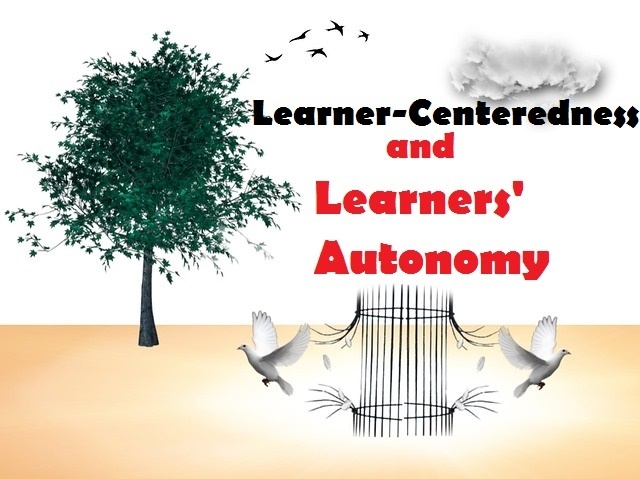Learner-centeredness
The learner-centered approach or Learner-centeredness is an approach to teaching that emerged in recent decades. Its emergence was mainly relevant to fundamental changes in teaching methods and approaches.
During the nineteenth and twentieth century, English has witnessed a remarkable development. Many people all over the world started to think of a practical command of English. During this period, English language teaching has also witnessed many changes. Many teaching methods and approaches were developed to update the changing needs of learners.
Perhaps the essential factors that led to the appearance of learner-centeredness are the flourishing development of theories that account for child development to mention but a few; constructivism and social constructivism which provided comprehensive and well-grounded explanations of learning and child cognitive development.
Learner-centered teachers don’t use only one teaching method. This approach emphasizes a variety of methods that shifts the role of teachers from givers of information to student learning facilitators.
In the past, teachers concentrated on what they do, and not on what the students learn and do. This emphasis on what teachers do often resulted in students who are passive and don’t take responsibility for their own learning.
Educators commonly use three phrases with this approach. Firstly, Learner-centered teaching places the emphasis on the person who is learning. Secondly, learning-centered teaching focuses on the process of learning. Thirdly, student-centered learning focuses more on learners than teachers. The last phrase is also used, even if some instructors don’t like it because it seems to take the teacher out of its critical zone as the arbiter in the classroom.
Why should teachers adopt a learner-centered approach?
As regards this question, modern research in second and foreign language teaching provides many arguments. But, for the sake of being brief, I will focus on the most three compelling ones.
The first argument is that this approach allows strategic processing and executive control.
This means that students develop the ability to regulate and reflect on their thoughts. This self-reflection is a necessary aspect of learning. Successful students take huge responsibility for their learning, they are actively involved in their learning, monitor their thinking, think about their learning.
The second argument is that this approach increases students’ motivation.
Modern research has indicated that learner-centered education leads to students’ motivation and great satisfaction with school.
Research on the use of such an approach in teaching has revealed that students increase their personal involvement, intrinsic motivation, personal commitment, and confidence in their abilities and skills. In other words, the learner-centered approach leads to higher achievement in education.
The third argument is that this approach emphasizes social interaction.
Just as the aforementioned theories of Piaget and Vygotsky assume, social interaction is necessary for learning to take place. This really matches an ancient Chinese proverb that says: “tell me and I will forget, teach me and I will remember, involve me and I will learn”.
This approach emphasizes the role of active engagement and social interaction in constructing students’ knowledge. It views learning as a social process in which the learner is a socially active participant in learning and constructing knowledge.
As has been noted, the shift to a learner-centered approach is fairly justified. There is a need, more than any time, to adopt such an approach in classrooms.
Research has shown that its utility is striking. Although there are many teachers who are resistant to change and often stick to the authoritarian teaching style, it is just a matter of changing conceptions and beliefs. Once they try it, they will immediately notice its remarkable charm.
Reference:
- Beichner, R.J., and Saul, J.M., 2003, Introduction to the SCALE-UP (Student-Centered Activities for Large Enrollment Undergraduate Programs) Project. Proceedings of the International School of Physics, Varenna, Italy, July 2003. (Accessed 15 April, 2007).
- Beichner, Robert J. and Jeffrey M. Saul. Introduction to the SCALE-UP (Student-Centered Activities for Large Enrollment Undergraduate Programs) Project. PKAL.
- Elen, J., Clarebout, G., Le ’onard, R., & Lowyck, J. (2007). Student – centred [sic] and teacher -centred [sic] learning environments: What students think. Teaching in Higher Education, 12 (1), 105 -117.
- Jacobs, G., & Renandya, W. (2016). Making extensive reading even more student-centered. Indonesian Journal of Applied Linguistics, 4(2), 102 -112.
I really hope you enjoy Edutopians’ posts. Please, share this one if you think it deserves. Please, Like our Facebook page and share this post if you think someone needs to know this.








Really interesting.